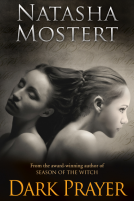 Non omnis moriar: I shall not altogether die. – Horace, Odes 3:30
Non omnis moriar: I shall not altogether die. – Horace, Odes 3:30
What if we’re all like that? Like ghosts … in someone’s mind … gradually fading … fading … until finally … one day … we just disappear … drift into nothingness. Wouldn’t that be sad? – Walter Wykes, Fading Joy
“Nobel Prize-winning neuroscientist Eric Kandel says we are who we are because of what we learn and what we remember. Who am I, then, if my memory is impaired?” ― Mira Bartok, The Memory Palace
She calls herself Eloise Blake. Though not the first line of the book, it is the first line of the story. The story of a girl, a girl named Eloise Blake. But Eloise has only been Eloise for the past two years. For before that, Eloise was Jenilee Gray. Lovely, sweet Jenilee who loved the colour peach and liked pansies and sweet peas. Who was soft and gentle, and the ward of a very rich man, Daniel Barone.
“The man is a genius—of the Stephen Hawking kind. But two decades ago he dropped out of academic research almost overnight.”
How odd. A neuroscientist, trying to identify the memory molecule, his work was decades ahead of the Sackler Lab and their work on the identification of PKMzeta. A huge breakthrough – but he simply walked away. Why? And is what happened then somehow related to what is happening now to Jenilee/Eloise, who one day walked out of a restaurant and completely disappeared from London?
“The last he saw of her, she was talking on the restaurant’s public telephone, looking agitated and holding a sheet of paper in her hand. . . Mr. Barone thinks this may be when she lost contact with her identity.”
John Boyne said, “There’s things that happen in a person’s life that are so scorched in the memory and burned into the heart that there’s no forgetting them.” But that is not actually true. For Jenilee/Eloise is in a fugue state – she remembers nothing of her previous life of privilege, living in what amounts to a squat, living for parkour, or in her case, “free running”. And because of Eloise’s obsession with free running, Jack Simonetti, bon vivant, spoiled little rich boy, is ordered to London to use his free running skills to track her movements, assure her safety, and, hopefully, return her to the persona of Jenilee Gray. Of course, if Jenilee returns, Eloise will be gone forever. And the longer Jack knows Eloise, the more he realizes that she may actually be the ‘true’ persona. . .
On the day she disappeared she drove into London to visit a solicitor who had contacted her about an envelope that was left her by her mother and date-stamped for release that day.
What is so horrific as to cause Jenilee to become Eloise – for her fugue state to last so long? What was in the envelope? And what is really going on – because there is more, much more. Something happened, all those years ago, when five people began a quest, a quest which left one of the group in a wheelchair and another – Jenilee’s mother– murdered, while two others came to know success beyond the wildest dreams of avarice. One of them Jack’s father, Leon Simonetti. A man without compassion, a man with secrets of his own. Secrets which may have left one young woman completely (irretrievably?) lost.
“There is a goddess of Memory, Mnemosyne; but none of Forgetting. Yet there should be, as they are twin sisters, twin powers, and walk on either side of us, disputing for sovereignty over us and who we are, all the way until death.” ― Richard Holmes
Once upon a time there was a group of five, The Order of Mnemosyne, all brilliant, all experts on memory. . .
Once students sat at the feet of their teachers – Anaxamander and Parmenides, Anaxagoras and Xenophanes. I sit at the feet of Natasha Mostert – not so much as a ‘teacher’ but as an author. I said, in my review of Season of the Witch:
I was again pulled into the deep waters of the mind, the dark corners of the soul. And once more, I was enthralled by Ms. Mostert’s grasp of language, her ability to paint a picture with words upon the page.
Now, she reaches deeper, wider, further. Are we, and our memories, becoming shallow, increasingly incapable of internalizing knowledge? Natasha has once more done meticulous research, delved into the world of medieval memory palaces, and expanding them into the modern world, complicated renditions of our memory palaces, “replete with galleries, endless staircases, passages turning in on themselves, Escher-esque tessellations and infinite loops; rooms within rooms and inside them grinning gargoyles, oblique symbols and images of dark beauty.”
As always, Natasha has created these very oblique symbols, images of dark beauty and pain, and a heartrending tale of the palaces of science – and the darkest depths of the search for the memories of god.
“We thought . . . we might even be able to look upon the face of God. Mnemosyne was a prayer.”
“A dark prayer. Worth any sacrifice”?
“Would you say it is worth the sacrifice of a child?”
I received Dark Prayer from the publisher in return for a realistic review. Natasha Mostert writes beautifully, with a depth of knowledge and empathy that makes her work beautiful and compassionate, painful and horrifying in equal measure. She is a great storyteller of depth and knowledge, and I completely adore her works. Highly recommended, as always.

Leave a comment